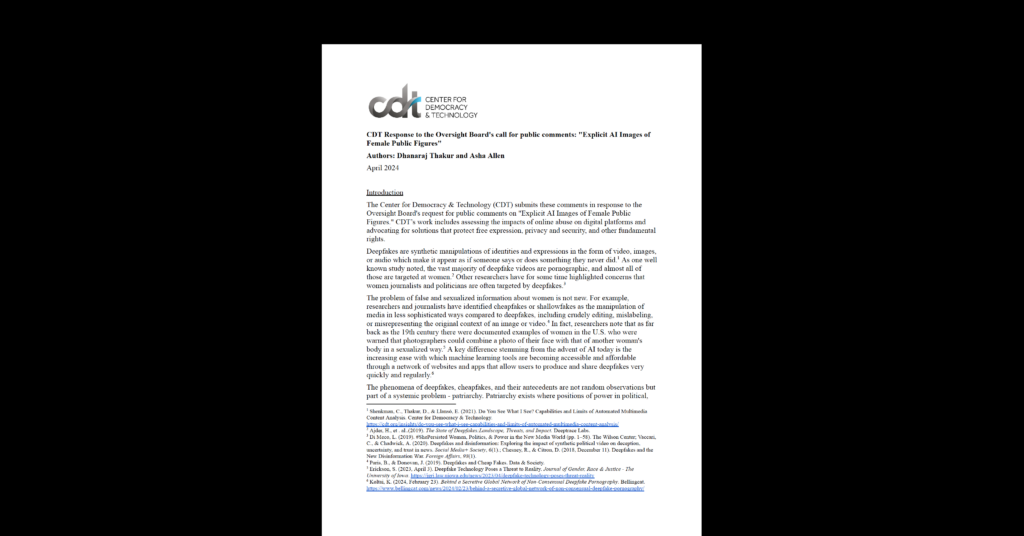Brief in Supreme Court “True Threats” Case Elonis v. US
Can an individual be convicted of the crime of making a threatening statement without a jury finding that he intended for his statement to put another person in fear of bodily harm or death? The Supreme Court Justices will consider this question next week, during oral arguments in Elonis v. US.
CDT joined the American Civil Liberties Union and a coalition of free expression organizations and experts to urge the Court to recognize that the First Amendment imposes a “subjective intent” requirement when speech, even apparently threatening speech, is subject to criminal penalties. The case concerns the conviction of Anthony Elonis, under a federal law known as the “interstate threat statute,” for posting rap lyrics and other statements on Facebook. Many of the lyrics and other comments expressed violent thoughts and desires involving his estranged wife. The core issue in the case is that a jury convicted Mr. Elonis for these statements without first concluding that he actually intended them as threats to his wife.
The First Amendment does not protect a speaker who threatens another with death or serious bodily harm. But to ensure that public discussion remains “uninhibited, robust, and wide-open,” it does protect speech that is “vituperative, abusive, and inexact.” In our amicus brief, we argue that proof of a speaker’s subjective intent to convey a threat is a necessary component to a “true threat” prosecution; absent this requirement, a “true threat” law could be used to prosecute unpopular (but constitutionally protected) speech. A purely objective approach, which asks only whether a “reasonable audience” (or even a ”reasonable speaker”) would understand the statement as a threat, would allow an individual speaker to be convicted merely for failing to accurately anticipate the reaction of his audience.
The fact that the speech at issue in this case occurred online only underscores the need for a subjective intent requirement. As we discuss in our brief, a significant amount of speech on political, social, and other issues today occurs online, and is often abbreviated, idiosyncratic, decontextualized, and ambiguous. Speech online is potentially viewable by audiences entirely unknown to the original speaker, and is susceptible to multiple interpretations that may be incongruent to the speaker’s original intent. A subjective intent requirement is particularly necessary to ensure that protected online speech is neither punished nor chilled.


